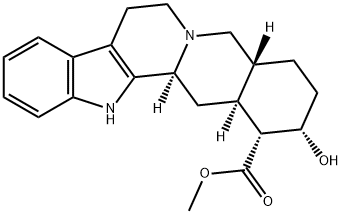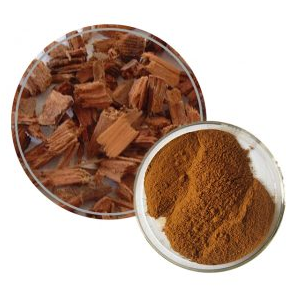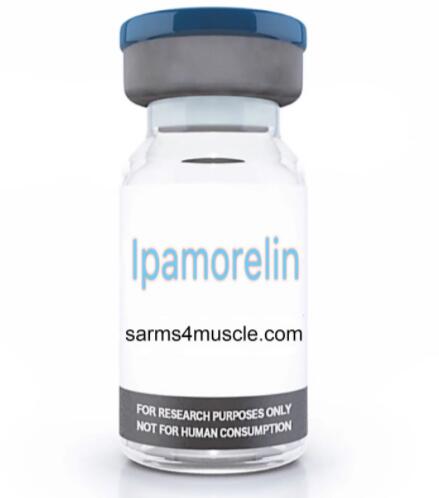Yohimbe - Uses, Side Effects, Benefits, and Warnings
People most commonly use yohimbe for sexual problems. It is also used to boost mood, for athletic performance, and other purposes, but there is no good scientific evidence to support these uses.
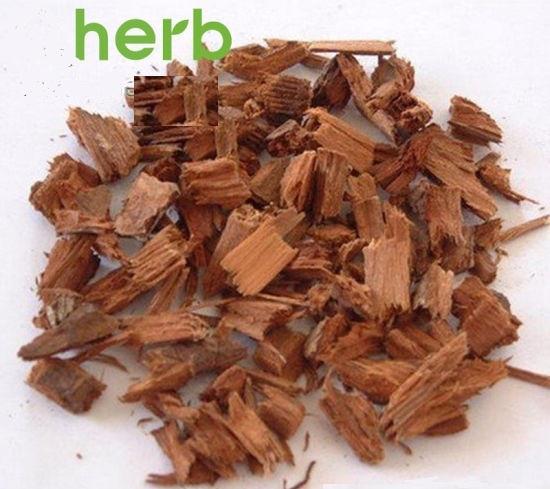
History
Yohimbine has been used as an aphrodisiac for many years. At first, pharmacologists attributed its aphrodisiac effects to psychological effects similar to placebo or increasement of peripheral vascular congestion, rather than real sexual stimulation. Physiologists at the Stanford University first conducted a study on the pharmacological effects of yohimbine and found that yohimbine could increase the mating ability of rats , which was then published on Science in 1984 . In addition, researchers in the Queensland University in Canada conducted experiments on 23 patients with sexual dysfunction. Six of them recovered after taking the drug for 10?weeks. In 1987, Canadian scientists confirmed that yohimbine treatment in psychogenic impotence was safe and effective and this drug could restore the patient’ssexual ability . Besides, they proved that this medicine showed good curative effects on organic impotence.
Uses
Yohimbine has been used primarily in the treatment of sexual dysfunction, weight (body fat) loss, and xerostomia (dry mouth). It has also been used in studies investigating disorders including autonomic failure and orthostatic hypotension. Effects on the CNS including reductions in fear and increased impulsivity have been reported.
Mechanism of action
Yohimbine is a pre-synaptic alpha 2-adrenergic blocking agent. The exact mechanism for its use in impotence has not been fully elucidated. However, yohimbine may exert its beneficial effect on erectile ability through blockade of central alpha 2-adrenergic receptors producing an increase in sympathetic drive secondary to an increase in norepinephrine release and in firing rate of cells in the brain noradrenergic nuclei. Yohimbine-mediated norepinephrine release at the level of the corporeal tissues may also be involved. In addition, beneficial effects may involve other neurotransmitters such as dopamine and serotonin and cholinergic receptors.
Pharmacodynamics
Yohimbine is an indolalkylamine alkaloid with chemical similarity to reserpine. Yohimbine blocks presynaptic alpha-2 adrenergic receptors. Its action on peripheral blood vessels resembles that of reserpine, though it is weaker and of short duration. Yohimbine's peripheral autonomic nervous system effect is to increase parasympathetic (cholinergic) and decrease sympathetic (adrenergic) activity. It is to be noted that in male sexual performance, erection is linked to cholinergic activity and to alpha-2 adrenergic blockade which may theoretically result in increased penile inflow, decreased penile outflow or both. Yohimbine exerts a stimulating action on the mood and may increase anxiety. Such actions have not been adequately studied or related to dosage although they appear to require high doses of the drug. Yohimbine has a mild anti-diuretic action, probably via stimulation of hypothalmic center and release of posterior pituitary hormone. Reportedly Yohimbine exerts no significant influence on cardiac stimulation and other effects mediated by (beta)-adrenergic receptors. Its effect on blood pressure, if any, would be to lower it; however, no adequate studies are at hand to quantitate this effect in terms of Yohimbine dosage.
Side Effects
Anxiety. There is mixed evidence about the effectiveness of yohimbine, the active ingredient in yohimbe, for treating anxiety related to phobias. Some research suggests that it does not improve anxiety when combined with therapy. However, other research suggests that it reduces fear related to certain phobias.
Depression. Early research suggests that taking yohimbine, the active ingredient of yohimbe, daily for 10 days does not improve depression symptoms.
Erectile dysfunction (ED). There is evidence that yohimbine, the active ingredient of yohimbe, can be helpful for ED. Some herbalists suggest that the yohimbe bark actually works better than the yohimbine ingredient alone. However, so far yohimbe bark has not been evaluated in research studies.
Exercise performance. Early research suggests that taking yohimbine, the active ingredient in yohimbe, daily for 21 days does not improve exercise performance or build muscle mass in soccer players.
Head rush (orthostatic hypotension). Early research suggests that taking a single dose of yohimbine, the active ingredient in yohimbe, increases blood pressure in people with a head rush due to low blood pressure. However, other early research suggests that it does not improve blood pressure.
Sexual problems caused by selective-serotonin reuptake inhibitors (SSRIs). There is evidence from many studies that yohimbine, the active ingredient of yohimbe, can improve sexual problems associated with this class of medications used for depression. However, this benefit has not been described specifically for the yohimbe bark.
Dry mouth. Early research suggests that taking yohimbine, the active ingredient in yohimbe, improves symptoms of dry mouth in people taking antidepressants. The effect of the yohimbe bark on dry mouth is not clear.
You may like
Related articles And Qustion
See also
Lastest Price from Yohimbine manufacturers

US $90.00/kg2025-04-21
- CAS:
- 146-48-5
- Min. Order:
- 1kg
- Purity:
- 99% Purity (What/sapp: +86 18145728414)
- Supply Ability:
- 1000 Tons/Month
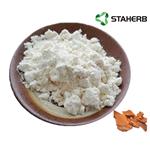
US $0.00-0.00/kg2025-04-21
- CAS:
- 146-48-5
- Min. Order:
- 1kg
- Purity:
- 20%-98% HPLC
- Supply Ability:
- 1000kg
